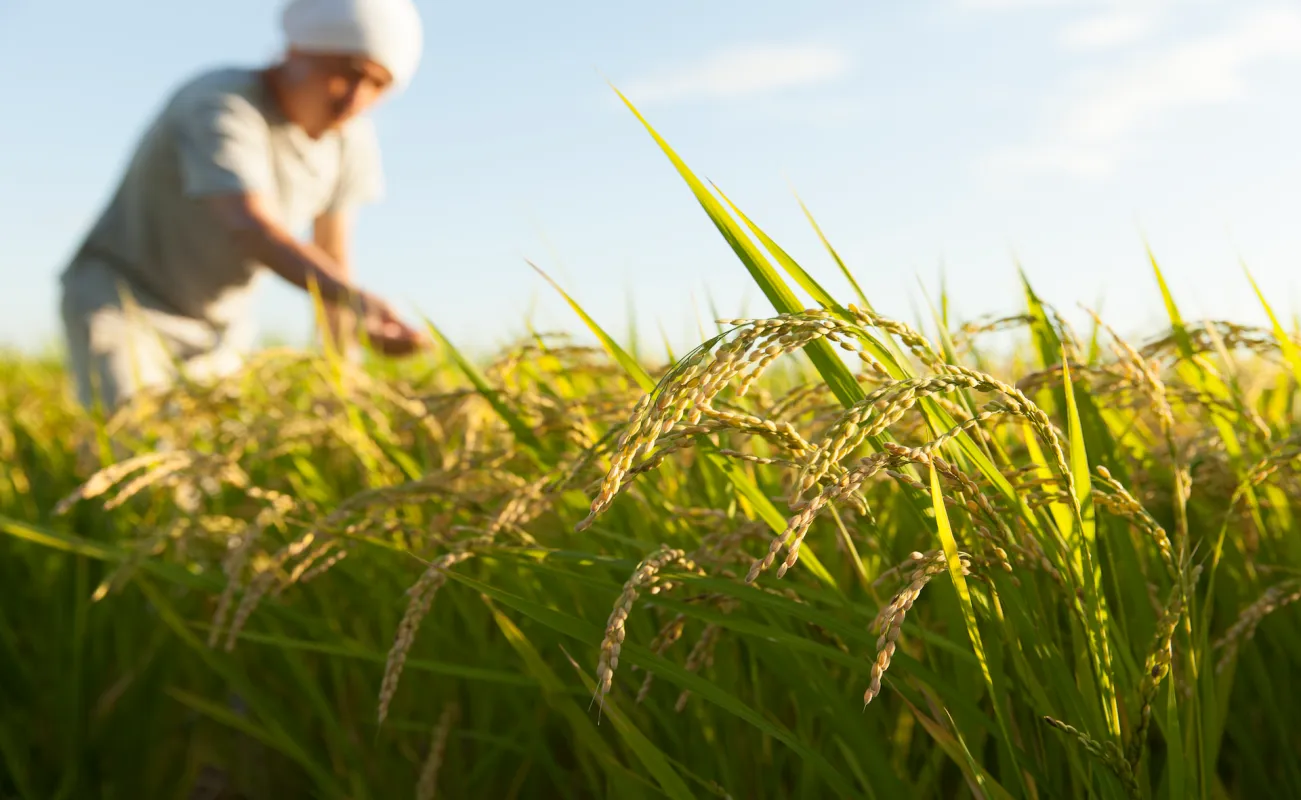Tags
Exploring the Health Benefits of Fermented Rice with Oyster Mushrooms

Key Findings
- In Sulawesi, fermentation of Pulu Mandoti rice with Pleurotus mushrooms boosts its nutritional value
- The fermented rice shows increased antioxidant and antidiabetic properties, especially with P. cystidiosus
- New compounds with health benefits were discovered in the fermented rice, suggesting potential for functional foods
In the quest for healthier dietary options, a recent study by researchers from Universitas Hasanuddin has turned the spotlight on a local red rice variety known as Pulu Mandoti. This rice, traditionally consumed by residents of Sulawesi, has been associated with health benefits, particularly for individuals managing diabetes or those mindful of obesity. The study is a significant stride in understanding how fermentation with mushrooms can enhance the nutritional value and medicinal potential of this indigenous rice.
Pulu Mandoti’s transformation begins when it undergoes fermentation with different species of Pleurotus mushrooms, commonly known as oyster mushrooms. These fungi are not just a culinary delight but are packed with nutritional and therapeutic properties. The study compared the effects of three Pleurotus species on the rice: P. cystidiosus, P. ostreatus, and P. djamor. Proximate analysis, which measures the nutritional content of foods, revealed that fermentation with P. cystidiosus notably increased the rice’s dry matter, crude protein, and crude fat content. These findings are consistent with the understanding that mushrooms can enhance the nutritional profile of foods they are combined with.
The health-promoting prowess of Pulu Mandoti was further elevated post-fermentation, as indicated by improved antioxidant and antidiabetic activities. Antioxidants play a crucial role in neutralizing harmful free radicals in the body, while antidiabetic activities are essential for maintaining blood sugar levels. The fermented rice with P. cystidiosus stood out, showcasing superior bioactivity. This can be linked to the presence of specific compounds identified through molecular docking, a method used to predict how molecules, such as drugs, interact with biological targets. In this case, 11-Eicosenoic acid, methyl ester, and butylated hydroxytoluene were pinpointed as effective antioxidants interacting with receptors 5O0x and 2CKJ. Additionally, butylated hydroxytoluene, along with 9-Octadecenoic acid, methyl ester, demonstrated promising interactions with the antidiabetic receptor 2QV4.
These compounds, hitherto undetected in Pleurotus mushrooms, have opened new avenues for their potential use as natural antioxidants and antidiabetic agents. The study’s findings are particularly encouraging in the context of previous research highlighting the antihyperglycemic properties of plant-derived flavonoids like rutin, which have shown to help manage diabetes. The discovery of these new compounds in fermented Pulu Mandoti suggests that there may be more such bioactive substances in mushrooms that could be harnessed for health benefits.
Moreover, the research delved into the fatty acid profiles of the fermented rice, underscoring the variety of potential bioactive compounds. Fatty acids are a key component of our diet and have been associated with various health benefits, including heart health and anti-inflammatory properties. The enhanced profile of fatty acids in the fermented rice further contributes to its status as a potential functional food.
The study’s findings present a compelling case for Pulu Mandoti fermented with Pleurotus mushrooms as a functional food rich in natural antioxidants and antidiabetic compounds. This could have far-reaching implications for the food industry, particularly in the development of muscle food products. The incorporation of mushrooms into such products has been shown to improve their nutritional quality, and the current study suggests that fermentation with mushrooms could be an innovative way to further bolster the health benefits of these products.
In conclusion, the research conducted by Universitas Hasanuddin demonstrates the transformative effects of Pleurotus spp. fermentation on the nutritional composition and bioactivity of Pulu Mandoti rice. The study not only aligns with the known health benefits of mushrooms but also expands on them by revealing new antidiabetic and antioxidant compounds. As the world continues to seek out functional foods that support health and well-being, the findings from this study offer promising insights into how traditional foods can be innovatively enhanced to meet contemporary health needs.
https://naturalsciencenews.com/article/1772Published Date: May 5, 2024






